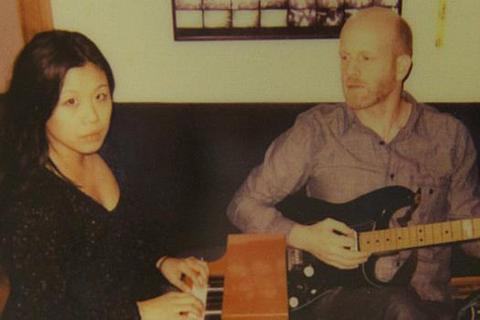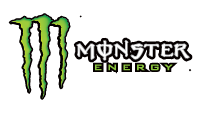Juan Maclean
Ask any diabolical mastermind—Dr. Evil, Sideshow Bob, the Monarch—and they’ll tell you, bringing the world to its knees is a lot like hosting a successful dinner party: It requires careful preparation and forethought. A plan. It may take years before all the pieces fall into place.
But once they do? Global domination should be easy as pie.
Since the turn of the 21st century, DFA club music maestro Juan MacLean has been laying groundwork. First, there were killer singles, from “By The Time I Get to Venus” in 2002, to last year’s international mega hit & critical year-end favorite “Happy House” as well as the “The Simple Life”. There was a debut full-length (Less Than Human, 2005); remixes for colleagues like Air, Chicken Lips, Daft Punk, David Gahan, Matthew Dear; international tours with Cut Copy and Shocking Pinks; and DJ gigs from Telluride to Tel Aviv.
Now comes the next stage of the operation, The Future Will Come. While the second full-length from The Juan MacLean may sound effortless in its execution, don’t be deceived. This record was made in accordance with a very careful plan. “Before going into production of the album, before I wrote anything, I had aesthetic and conceptual guidelines in mind,” admits MacLean. “I stuck to those, and they panned out.”
Phase One: “I was very much influenced by going on tour with my live band for a couple years.” Rather than retreat to a recording studio in Woodstock, NY, and toil in solitude, he brought along Nick Millhiser and Alex Frankel (also known to DFA fans as Holy Ghost!) and drummer extraordinaire Jerry Fuchs to lay down parts. “I had already done enough on my own,” concedes the seasoned studio whiz. “With very rare exceptions, music is always made better by having the influence of other people.”
Which brings us to Phase Two: “The next guideline was revisiting The Human League,” reveals MacLean. And not the early, stodgy, “Being Boiled” incarnation either. The bones of that model were long ago picked clean. No, the sounds and songs of The Future Will Come emulate the best of The Human League v2, the lineup responsible for the 1981 international bestseller Dare.
MacLean makes no apologies for this creative choice. “In my career as The Juan MacLean, my guiding principle was to start out more dance-y and instrumental, and someday bow out making flat-out, three-and-a-half minute pop songs.” Right now, he estimates this creative arc is at its midpoint. The perfect time to craft a set of tracks to rival “Don’t You Want Me,” then. Watch the effect the opening bars of “Happy House” have on a packed night club; the exuberance it triggers in listeners easily matches the giddy heights of that time-tested synth-pop classic.
“I wanted to do an album with male-female interplay in the vocals,” MacLean continues. Rather than go down to the local disco and recruit a couple hipster girls who looked good dancing, he tapped creative foil and DFA mainstay Nancy Whang (also an agent of LCD Soundsystem) instead. She was a willing co-conspirator. “The very first song we worked on, he already had his vocal part, and wanted mine to serve as a counterpoint,” she remembers. “From there, I could hear the male-female call-and-answer.”
Phase Three was, for better or worse, simply a natural progression. “One consequence of touring and DJing so much, and always being away—and this was true for Nancy as well—is the trail of destruction in personal and romantic relationships,” says MacLean. “Contrary to the general lyrical tone in our world of music, I wanted to be as direct, honest and sincere as possible.” Humor remains integral to the band’s aesthetic, but it is not nearly so arch or pointy. No air quotes hover around the sentiments expressed herein.
With these points set, Juan and Nancy wrote and recorded the album quickly. Rather than elongate ideas into epic 12-inch singles, they strived to keep sounds and structures crisp and succinct. Focus was maintained via ruthless edits and repeated spins of “SexyBack.” The results range from the bittersweet parry-and-thrust of “One Day” to the android R&B of “The Station.” At the furthest extreme, the spare, desolate “Human Disaster” serves as a chilling contrast to the climatic reprise of “Happy House.”
Whang acknowledges that the polish and precision of The Future Will Come may catch some devotees off guard. “I know diehard Juan MacLean fans are going to be surprised, because the material is so vocal, and much more pop.” But she does not fear resistance from the masses. Nor should she. Fully-realized and flawlessly executed from start to finish, The Future Will Come stands poised to disarm millions of listeners.
World domination? It’s as easy as 1-2-3. Just ask The Juan MacLean.
Despite that lengthy list of offerings, there are surely those just awaiting a Maclean long player. For those fans, there is Everybody Get Close, a digital only collection of Maclean’s material featuring new music, re-mastered tracks and remixes from some of his most talented colleagues.
Interspersed among the 11 songs here are five that originally appeared on “Find A Way,” a tour EP previously only available in its entirety to those who made to a Juan Maclean live show. That release’s title track opens Everybody Get Close with call-and-response vocals from Maclean and bandmate Nancy Whang atop an electronic pop base, while “Let’s Talk About Me,” which follows, bounds blissfully throughout. “Deviant Device” is laden with dubby percussion and echo-drenched synths reminiscent of Basic Channel. “X2” offers up wide hall of house and robotized vocals; and “The Robot” – at just 2:05 – is filled with mechanical sounds and extraterrestrial noises. “Feel So Good,” from the aforementioned DJ-Kicks compilation – and also featuring vocals from Whang – is built on a rolling loop and an indefatigable beat provided by late drummer Jerry Fuchs. Japanese bonus track “When I Am With You” leisurely moves along on a relaxing romantic groove. Album closer “Everybody Get Close” – has mechanical vocals and funky synth bleats that show faint traces of major influences like Zapp and S.O.S. band, respectively.
The three remixes included here differ wholly in character. The Holmes Price remix of “Human Disaster” radically alters the mood from that of the original, delivering a sound that immediately brings Human League to mind (a constant reference on Juan’s album too), while Jee Day’s reworking of the same song reinvents the original creaky piano ballad with disco and house undertones. Meanwhile, Cut Copy’s take on Happy House (only released in Australia) tones down the glee of the original with the inclusion of muscular, brawny vocals.
Juan Maclean and Nancy Whang have begun work now on The Juan Maclean’s 3rd LP for DFA Records. In the meantime the digital compilation Everybody Get Close, serves as a handy compilation and welcome reminder of the music Juan Maclean has contributed to both the dance and indie community. It also can only hint at what might come next from the chameleon-like Juan Maclean.
















